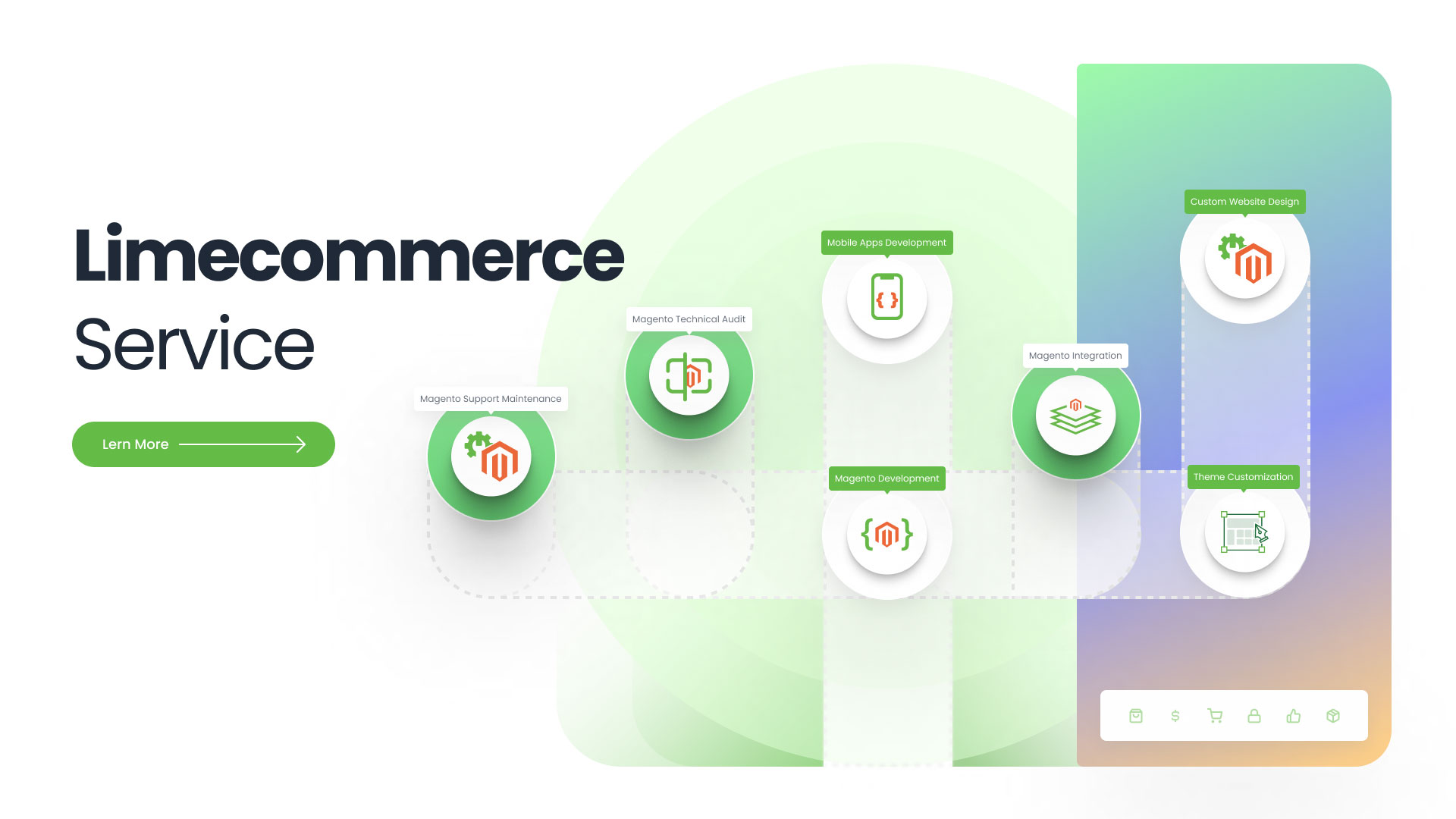
WordPress vs Magento, Pros & Cons
08 August 2017
By limenotlemon
WordPress vs Magento
With all the available E-Commerce platform choices out there, you may do not know which is the best one for your online business. Each platform has its own benefits and has its own limitations too. Then what about WordPress and Magento?

Both of them are equally good, and their loyal users always praise both systems too. If you are considering to pick between these two, then first you need to understand how each system works, their similarities and dissimilarities, so you get a better idea which between these two is better for your online business.
WordPress
Most people know or at least heard about WordPress. WordPress is a platform that initially builds for blogging purpose, but now it can be used for many things, including E-Commerce. There are some pros and cons of using WordPress for your E-Commerce site that may worth considering before you make your final decision.
Pros:
- It is easy to change the look of your site.
You do not need to develop your WordPress site from the scratch. That is mean, you can change the look of your WordPress site by simply changing the theme. You will not lose any data by changing the theme, and the process is quite simple and fast too.
- Perfect choice for the small business with minimal effort for maintenance
If you just start your online business and want to get people aware of your brand first, then WordPress can become a great start for you. It is easier to use and does not take too much time and effort to get it runs. There are also some plugins available that can help with your branding awareness, like Yoast.
- Cheap with almost no ongoing fees.

With WordPress, the only fees you need to pay is the hosting fees (it’s better to use a paid one for an E-Commerce site) or another similar cost (like payment processing fees, if you use any).
- Constantly update.
When it comes to a website, the older it gets, the more vulnerable it becomes. WordPress have their regular updates to enhance the security of the site. It is the same for plugins and themes (especially if you bought them from a reputable developer).
Of course, for an extra measurement, it would be better if you update your data first before updating anything. There is always a chance something goes wrong. Better be safe than sorry, right?
- The freedom to infinite customization
Yes, you are free to create any kind of store you want with WordPress. This is thanks to all the available features which you can get from thousand of plugins out there.

- Platform with a massive user base
WordPress has so many users. This fact is really helpful when you encounter a problem in your WordPress site. With a large user base, it becomes very easy to find the solution of your WordPress problem with a simple search in Google, especially if the issue you are experiencing has happened before to someone else who uses the same platform for her or his E-Commerce store.
- For a better appearance, use a premium theme
There are several available free themes if you do not want to waste more money (or you simply do not have extra money to spare at this point) to use on your WordPress site, and these free themes will do just fine. However, for a better appearance and usability, a premium theme can do more just than a beautiful design. Sometimes, it comes with integrated plugins so you can do more on your website.
If you plan to use a premium theme, remember to buy it from a reputable seller only, like ThemeForest.
Cons:
- The support for E-Commerce issues is limited
WordPress is not made for E-Commerce purpose alone. To create an E-Commerce site out of WordPress, you need to use third party plugins. That is mean, when a problem occurs, you may not be able to ask help from the WordPress itself. Instead, you will be forced to ask help from third party support or forum, which may take more time to find.
- There is still a limit to what WordPress can do.
Even though WordPress is very customizable and flexible, that does not mean you can do literally anything with WordPress. If you need a quite specific feature, then it would be better to use another E-Commerce platform instead.
- Security issues
WordPress is popular, and due to its popularity, many people tried to hack its system too. You may need to change a few code in your site, especially the plugin’s codes so others can not access your data easily.

- Untrustworthy theme and plugin sellers
Most of the high-quality premium themes that made by reputable sellers aren’t cheap. Some newcomers in the E-Commerce world may be tempted to buy a cheap one due to budget reason.
There are several problems that you may get from buying a cheap theme from untrusted source. For example, the person who made that theme probably just re-skinned an already existing theme, sell it cheap, and then stop giving support after you bought and use it.
Cheap theme from a untrusted source may come with viruses too, so be extra careful and only buy themes from a trusted source.
- Could be confusing for people with no knowledge in programming
Most programmers think that WordPress is very easy to use, but what about people who aren’t a programmer? For a beginner, it is not too hard to use the basic function of WordPress. However, when you want to add a bit of customization or additional feature, then HTML & CSS knowledge is a must.
Most themes come with options to change colors, fonts, or things like those, but it will not be enough if you want a more complex customization.
Magento
While WordPress is the most popular platform for various kind of websites, Magento is the most popular platform for the E-Commerce site.
Magento is an open source platform (which means you can customize it however you want), has a free version (including free themes and plugins), and suitable for any kind of business, from a small startup to big international chains.
Of course, just like WordPress, Magento also has its own pros and cons.
Pros:
- Flexible
Because Magento is an open source platform, you are free to modify the code based on your preferences and requirements. That is mean, you can create any kind of online stores you want, with all your desired functionalities.
As an extra, you also able to integrate your Magento store with various kind of third party plugins and APIs. This is also one of the main reason why many online business owners love Magento!
- Large users community
Magento is popular as an E-Commerce platform, so many people use it. That is mean, it will be easier for you to get a quick support anytime you need. This large community also contributing in plugins, themes, and extensions creation.
- Has more features than another platform
Magento has a very wide range of features. You can manage multiple stores in multiple languages, currencies, pricing, and locations.
For example, you can set different prices for the different group of customers. So, a first time customer may get a different price than a long time subscribed one.

- Scalable
If you just start your business, you will not go all out with your online store, right? Most people start with a basic online store with basic function. When their business grows, then their store will expand accordingly to that.
That is mean, your E-Commerce site must able to handle your increased amount of sales and products. Keep in mind that not all platforms are able to handle this growth, but with Magento, you can easily scale your store based on your needs.
- Mobile friendly
A mobile device like the smartphone has become an inseparable gadget nowadays. You can see people with their smartphone everywhere. It is common for people nowadays to browse or do online shopping via their smartphone.
Magento is mobile friendly and responsive, which means your site will still look good to be seen from any kind of devices or screen resolutions.
Cons:
- Can be a bit expensive
While the community version of Magento is free, the same can not be said for their Enterprise version.
Most premium high-quality themes and extensions aren’t free too. If you can not install the extension yourself, you need to hire a professional help (and you still need to pay for regular maintenance tasks).
- Can be a bit time consuming
Yes, you can customize your Magento store however you want, but that does not mean you can just dump all extensions and features into your store. If you do that, then your loading time will be slower than a snail. So, please consider it twice and do your research before you add something into your store.

- It is a bit hard to find a real Magento expert.
Magento has a large community of users and developers. Many people can claim to be a Magento expert, but only a few of them have the ability to understand Magento’s complex and large system (due to its vast customization).
Even if you managed to find a genuine one, the cost is quite high.
- Hosting
Due to its large scale, it would be the best to use a dedicated server for your Magento store. Using a shared hosting may cause a slow loading time and bad user experience.
Those are the pros and cons of WordPress and Magento. So, which is the best one for your E-Commerce store? The answer will depend on your own needs and requirements. If you prefer something cheaper and easy to use, then use WordPress. If you do not mind high cost but can get all the customization and features you want, then choose Magento.
